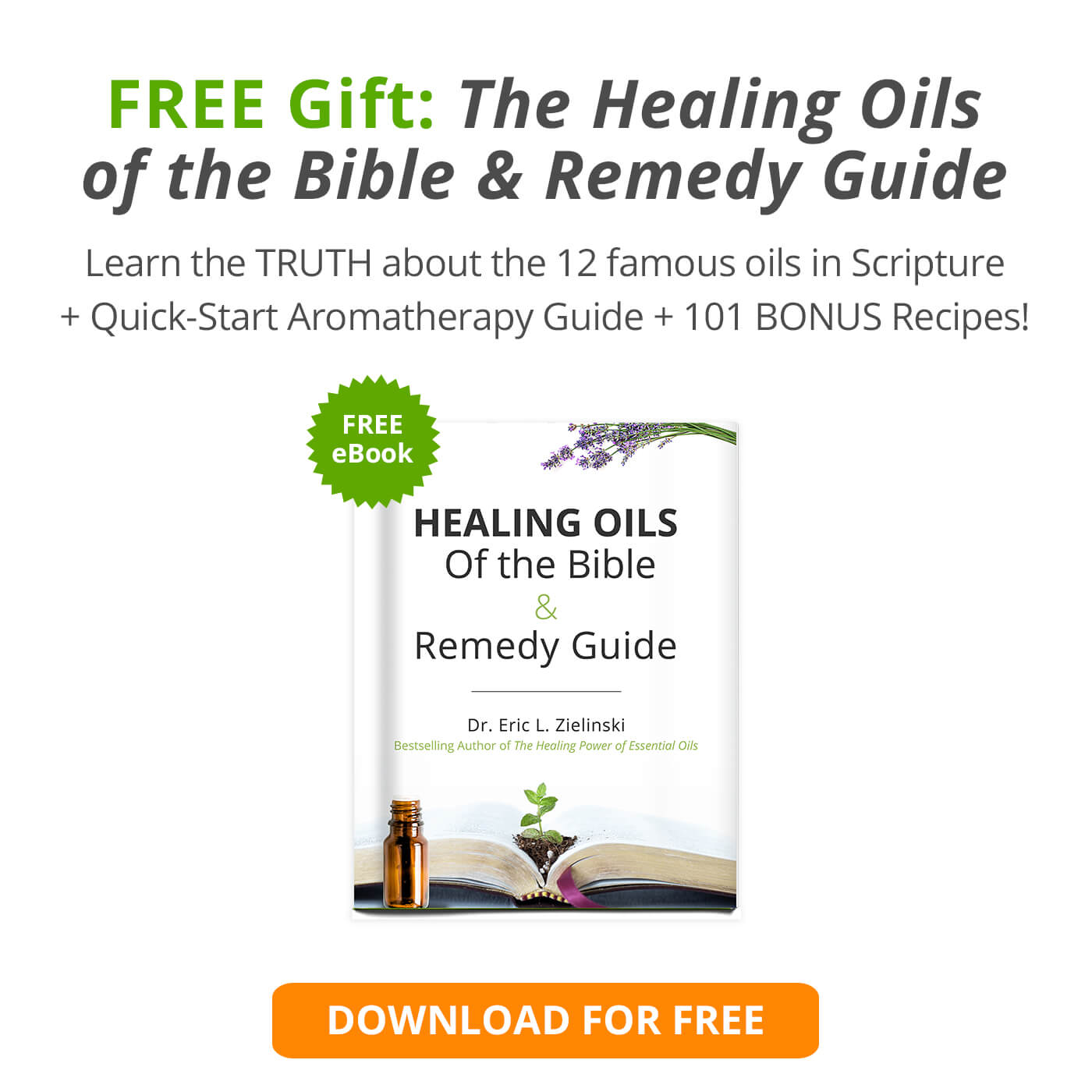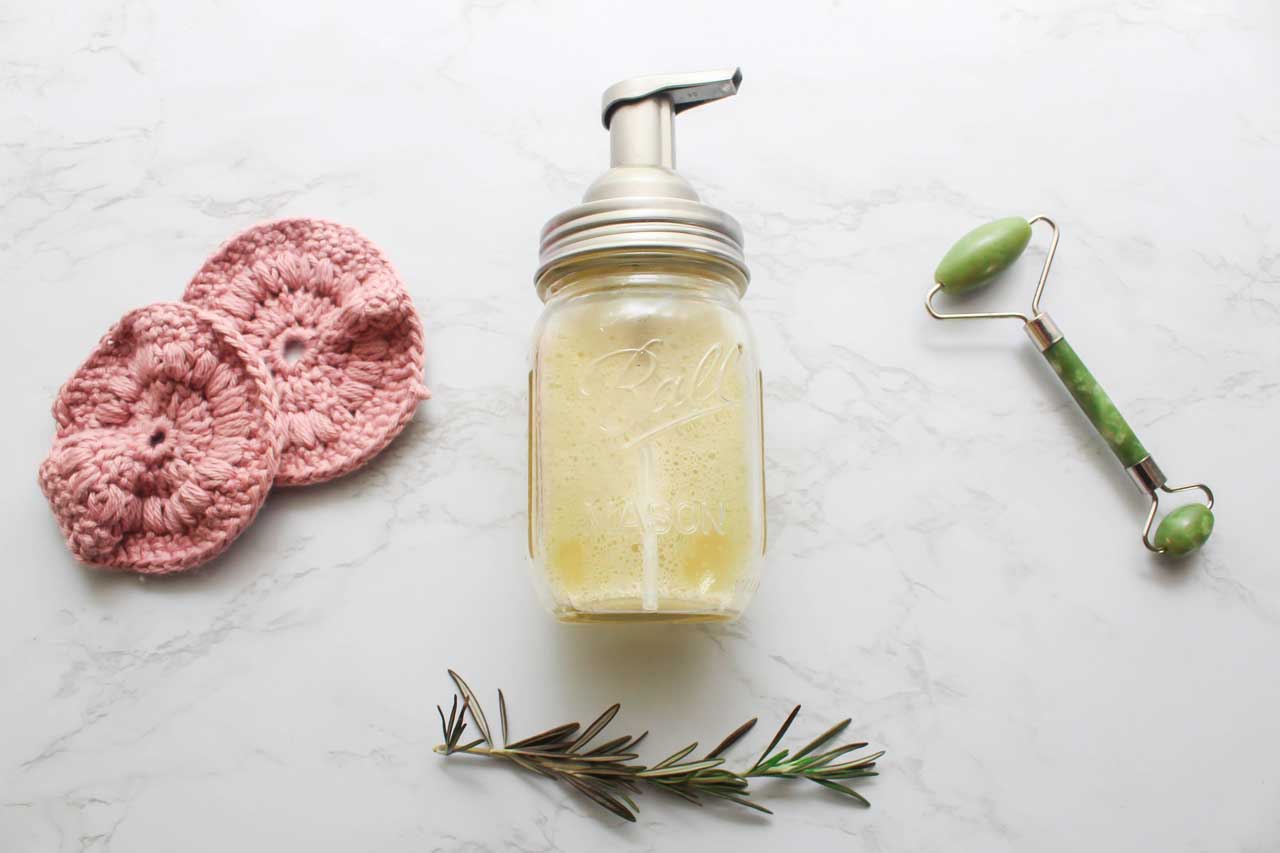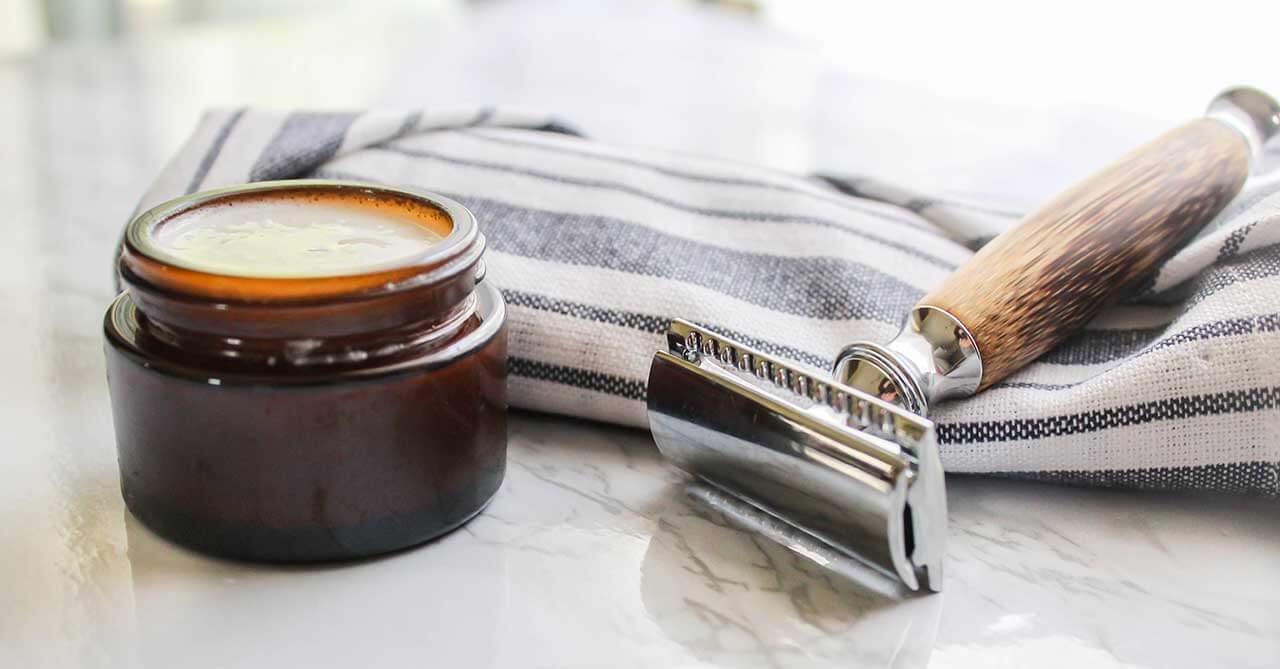There are many kinds of all-natural toothpaste on the market, but they can quickly put a dent in your wallet! My Homemade Toothpaste Recipe with Essential Oils freshens your mouth without any toxins. Our family loves using this tooth powder to create a healthy, clean mouth.
This recipe contains bentonite clay, which is excellent for detoxifying the mouth. Don’t worry; when sweetened with stevia and flavored with essential oils, this toothpaste tastes great!
Table of Contents
The Importance of Oral Health
Oral health is an integral part of abundant living, and this small area can impact your entire body. Oral health goes way beyond cavities and halitosis! Problems in the mouth cause over 80% of disease symptoms. Gum disease can cause an increased risk for heart disease (1). There’s even a link between bacteria in the mouth and thickened arteries (2).
Sadly, many people are exposed to disease-promoting dental procedures because they don’t prioritize their oral health. You can easily avoid many of these interventions with a bit of preventative care. While there are many fancy techniques, it’s important to remember the basics.
Brush your teeth– You should brush your teeth after each meal. Don’t rush through this process! Take your time to ensure that leftover food particles are gone.
Floss regularly– Flossing helps eliminate stubborn pieces of food from the crevices of your teeth. It also stimulates your gums, decreasing your risk of gum disease. I recommend flossing at night when you’ve finished eating.
Go to the dentist– Did you know there are holistic dentists? These dentists combine conventional treatments with natural options. They are more likely to have alternatives to harmful procedures, like mercury fillings. Don’t skip your dentist appointments!
Use essential oils for oral health – Some essential oils are proven to help support good oral hygiene. These are the EOs you can tap into most for homemade oral products like this toothpaste recipe or a mouthwash DIY.
3 Harmful Ingredients in Toothpaste
In my opinion, we need to take extra caution with our oral health products since we end up consuming them. Sadly, most store-bought products are full of toxins. Here are just a few of the chemicals you can find in most tubes of toothpaste.
1. Fluoride
Fluoride is a harmful ingredient found in almost all oral care products. Until recently, oral health specialists thought fluoride was essential to have healthy teeth, but now we know that’s not the case. Fluoride is classified as a chemical that causes neurotoxicity. Consuming too much fluoride can also lead to fluoride toxicity (3), affecting teeth coloring, kidney function, and more. If you have little ones in your home, this is particularly alarming! Store-bought toothpaste tubes have kid-friendly flavors that lead to little ones using too much, making fluoride toxicity a huge possibility.
2. Aspartame
You wouldn’t dream of brushing your teeth with sugar, so companies add a sugar substitute called aspartame to make toothpaste taste good. Aspartame is marketed to dieters as a low-calorie replacement for sugar, but studies show that consuming this fake sweetener leads to higher food consumption (4). Aspartame can also cause headaches, spiked blood sugar levels and more. (5) In this recipe, we use stevia as a sweetener. It tastes better than aspartame, and there are no odd side effects!
3. Sodium Lauryl Sulfate
This toxin is what gives you a mouthful of foam. SLS is an environmental toxin that can do crazy things to your body. (6) A fun fact about sodium lauryl sulfate is that researchers use it to create skin and eye irritations during product tests. SLS can cause canker sores (7), which is the direct opposite of oral health! SLS is one of the worst toxins for your body and should be avoided at all costs.
Natural Oral Health Ingredients

There’s a better way to take care of your teeth, and it all starts with natural, non-toxic ingredients. Here’s what you need to make this recipe.
Essential Oils: Many essential oils have antimicrobial properties, making them perfect to use in toothpaste. They can help freshen your breath, fight plaque, and battle canker sores. They’re the icing on the (sugar-free) cake! Here are some of my favorite combinations.
- Peppermint: Fights halitosis, smells fresh, gives you a burst of energy in the morning!
- Clove and Orange: An excellent blend for sensitive teeth
- Eucalyptus, Rosemary, and Orange: Use these oils for whiter teeth
- Lime, Lemon, and Grapefruit: All of these oils are great mood boosters!
- Wintergreen: Minty-fresh. An excellent option for people who have stubborn halitosis
Distilled Water: Tap water can contain fluoride, an ingredient to stay away from! Your local water can also carry toxins that contribute to obesity, diabetes, and congenital birth disabilities. I recommend using distilled or purified water whenever possible. Ours hooks right up to the tap and gives us clear, crisp water.
Coconut Oil: Coconut oil is the ingredient of choice for most people who practice oil pulling. This oil contains lauric acid, which can reduce gingivitis and plaque! Coconut oil is an all-natural thickener, and it gives our toothpaste a silky feel.
Bentonite Clay: Bentonite clay comes from volcanic ash. It can help absorb toxins in the mouth while giving you good minerals that will help strengthen your teeth. Bonus: This ingredient can also help whiten teeth.
Stevia Powder: Stevia is an all-natural sweetener that helps neutralize the taste of bentonite clay. A little of this sweetener goes a long way!
Himalayan Pink Salt: Saltwater is usually recommended after dental surgery to eliminate bacteria (8). Salt is highly effective in combating halitosis, making it an excellent ingredient for natural toothpaste. Bonus: If you have sensitive teeth, Himalayan salt can help ease discomfort.
Homemade Toothpaste Recipe
This DIY is easy to make! In just minutes, you’ll be ready to detox your mouth naturally.
- 10 drops essential oils*
- ¼ cup hot distilled water
- 1 tablespoon coconut oil (more if making toothpaste)
- ⅓ cup bentonite clay
- 1 ½ teaspoons stevia powder
- ¼ teaspoon Himalayan pink salt
- Supplies:
- Glass jar or container
- Food processor
- Glass jar with lid (for storage)
- Mix your essential oils in a small glass bowl and set aside.
- In a medium bowl, mix the hot water and coconut oil and let stand until the coconut oil melts.
- Put the bentonite clay, stevia, and sea salt in the food processor and process until combined.
- Add the water and coconut oil mixture gradually and process until combined.
- Add the essential oils and process for a few more seconds. The mixture should be granular and slightly damp.
- Store in a glass jar with a lid.
- Apply enough to cover your toothbrush. Wet with water and brush as usual.
Bergamot, lemon, and grapefruit
Sweet or wild orange, clove, peppermint, spearmint
Cinnamon bark or cinnamon leaf, clove, sweet or wild orange
Roman chamomile, spearmint, wintergreen
Frankincense, lime, myrrh.
To make the toothpowder into toothpaste, gradually add more coconut oil, blending as you go until you reach the desired consistency.
To make the toothpowder into toothpaste, gradually add more coconut oil, blending as you go until you reach the desired consistency.
Step One: Mix the Essential Oils

Mix the essential oils of choice in a small glass container and set aside.
Step Two: Melt the Coconut Oil

Mix the hot water and coconut oil in a medium bowl and let stand until the coconut oil is fully melted.
Step Three: Add Dry Ingredients

Put the bentonite clay, stevia, and sea salt into a food processor and process until well combined.
Step Four: Add Wet Ingredients

Add the water and coconut oil mixture slowly and process until thoroughly combined.
Step Five: Add Essential Oils

Add the essential oils and process for a few more seconds. Your mixture should be granular and slightly damp.
Step Six: Brush Your Teeth

To use, apply just enough of the homemade toothpaste recipe to cover your toothbrush. Wet with water and brush as usual. Store your toothpaste in a glass jar with a lid.
- https://www.mayoclinic.org/healthy-lifestyle/adult-health/expert-answers/heart-disease-prevention/faq-20057986
- https://pubmed.ncbi.nlm.nih.gov/18597599/
- https://en.wikipedia.org/wiki/Fluoride_toxicity
- https://www.cell.com/trends/endocrinology-metabolism/fulltext/S1043-2760(13)00087-8
- https://www.ncbi.nlm.nih.gov/pmc/articles/PMC5591507/
- http://s7d2.scene7.com/is/content/Watscocom/Gemaire/lucas-milhaupt_97030_article_1365692182421_en_msdss.pdf?fmt=pdf
- https://health.ucsd.edu/news/features/Pages/2019-07-08-otc-oral-health.aspx#:~:text=Foaming%20agents%20in%20toothpaste%20such,available%20without%20sodium%20lauryl%20sulfate.
- https://pubmed.ncbi.nlm.nih.gov/28914244/







